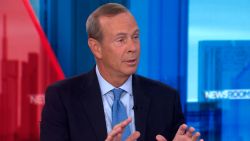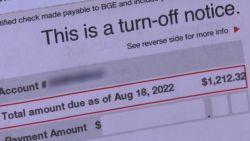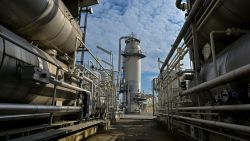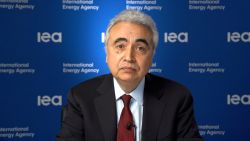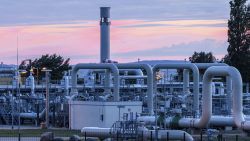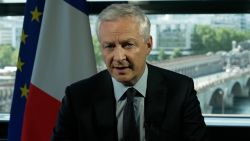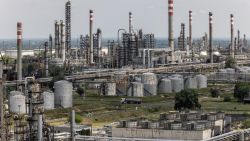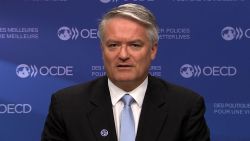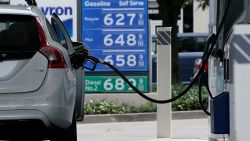BP (BP) is cutting 10,000 jobs as it reels from a crash in oil prices and tries to pivot toward renewable energy.
CEO Bernard Looney told employees on Monday that the oil giant would reduce its global workforce by nearly 15% this year. Most of the cuts will affect office jobs.
The company said in February that it would reorganize its business to achieve net zero emissions by 2050 or sooner. The coronavirus pandemic, which caused oil prices to plunge as people hunkered down at home, has only accelerated the need to reduce costs, Looney said.
Brent crude futures, the global benchmark for oil prices, hit their lowest level in decades in April, falling below $20 per barrel. They’ve since staged a comeback and were last trading above $42 per barrel. But that’s still well below where prices started the year.
“The oil price has plunged well below the level we need to turn a profit,” Looney, who took over BP’s top job earlier this year, said in an email to employees. “We are spending much, much more than we make — I am talking millions of dollars, every day.”
BP also announced that senior leaders wouldn’t get a pay increase through March 2021. It was also “very unlikely” to pay any cash bonuses for 2020, the company added.
So far, BP has resisted pressure to cut payouts to shareholders, despite a $6 billion increase in its net debt in the first quarter. The board has said it will reconsider whether it can afford to pay dividends on a quarterly basis.
Overhauling BP
BP had planned to announce a vast restructuring of its business in September to meet a set of new climate goals.
Before the coronaviruscrisis, demand for oil had been expected to peak around 2040 due to the rise of electric cars, increased energy efficiency and a switch to alternative sources, putting pressure on the industry to decrease its reliance on fossil fuel production.
But Covid-19 has made the transition to cleaner sources of energy even more urgent, Looney said Monday. The International Energy Agency expects oil demand for 2020 to fall by an extraordinary 8.6 million barrels per day.
“To me, the broader economic picture and our own financial position just reaffirm the need to reinvent [BP],” the CEO said in his note to employees. “While the external environment is driving us to move faster — and perhaps go deeper at this stage than we originally intended — the direction of travel remains the same.”
BP has pledged to cut greenhouse gas emissions from its global operations, as well as emissions that result from the oil and gas it produces, to net zero by 2050. By the same date, BP aims to halve the carbon intensity of the products it sells.
Demand for crude is starting to recover as countries restart their economies. But apotential resurgence of the virus poses a major risk to any forecasts, helping to keep a lid on prices even as a supply glut eases and thirst for oil returns.
Over the weekend, OPEC and allies agreed to extend record production cuts through July, highlighting concerns that prices could drop again without ongoing support.
UBS analyst Giovanni Staunovo told clients Monday that the oil price rally could “prove self-defeating” if it encourages producers to ramp up production again prematurely.
Even if prices can hold above $40 per barrel, oil companies like BP could face a cash crunch.
Competitor Royal Dutch Shell (RDSA) cut its dividend in April for the first time since World War II, citing the need to shore up its balance sheet.
— Chris Liakos contributed reporting.



